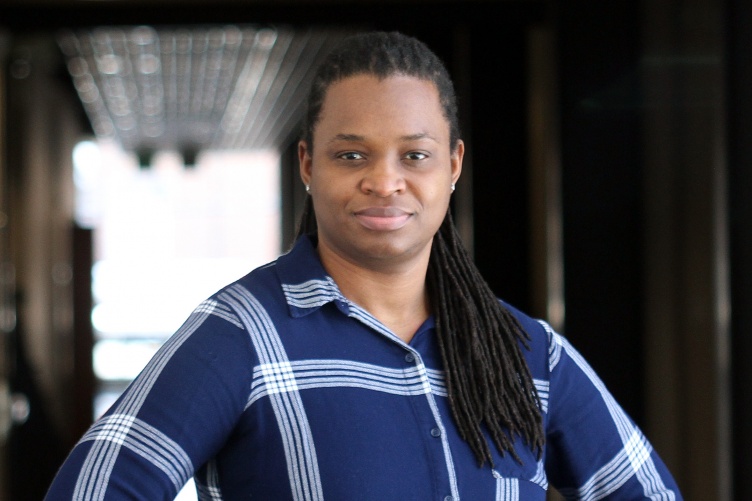
Mastering the subject of algebra is considered vital to succeeding in higher-level mathematics and the pursuit of a career in science, technology, engineering and mathematics (STEM). But, similar to learning algebra, teaching algebra has its own set of variables to consider in determining the best approach.
To better understand important variables in teaching algebra, Sheree Sharpe, an assistant professor in mathematics and statistics, was awarded a prestigious Faculty Early Career Development Program, or CAREER, award from the National Science Foundation.
Sharpe will utilize the five-year, $1 million grant to analyze existing research to better understand the generalizable themes of four constructs – parental involvement, school climate, algebra teaching approach and student engagement – on algebra achievement for students in grades K through 12, while accounting for differences across socioeconomic status, gender and racial/ethnicity lines. Her goal is to use qualitative and quantitative meta-research to develop to develop an Educational Learning Environment (ELE) framework and transform research into practice in K-12 mathematics education.
“This research is aimed at establishing a basis for the integration of research with education and diversity that will lead to a deeper understanding of how to teach school algebra more effectively,” says Sharpe, who has been at UNH since 2015. “It’s an honor to receive such a prestigious award and I am excited to get started with this important work.”
The endeavor builds off Sharpe’s previous research, which focused on exploring students’ strengths and weaknesses in learning algebra, specifically analyzing how factors at the family, teacher, school and student levels impacts algebra achievement. The basis for expanding that research is to synthesize results aggregated from 40 years of research and develop a framework that will inform parents, students, teachers, other educators and researchers.
“My long-term career goal is to transform data-driven research into effective pedagogical practices in mathematics education, particularly school practices that will improve outcomes for minority and female students who have traditionally been prevented from success in algebra,” says Sharpe. “As a Black female in STEM education, I also have a passion to attract underrepresented students to STEM education, especially at the doctoral level.”
The education and diversity components of the project aims to provide research experience to both undergraduate and graduate students through a seminar class, and recruit and train two postdoctoral research scholars and a doctoral student from underrepresented backgrounds in mathematics education.
















































